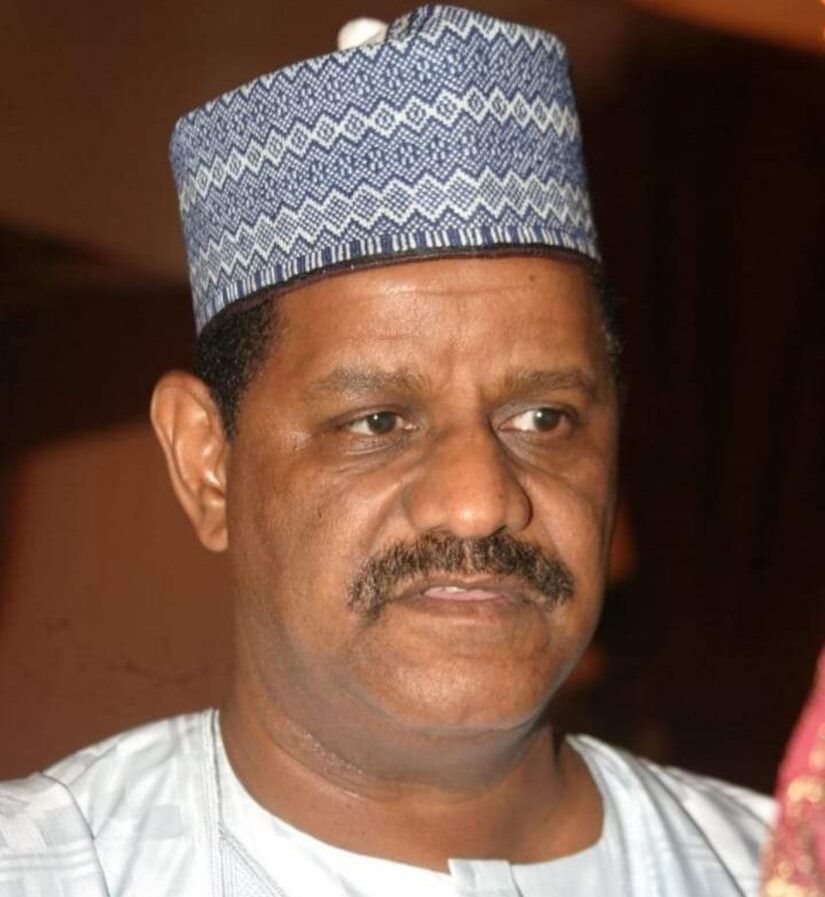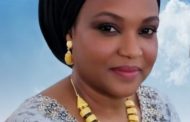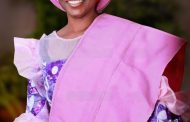The struggle for the Office of the President of Nigeria has become so crowded an affair that this series which started with Alhaji Ahmed Bola Tinubu December 16h, 2021 has barely progressed beyond Alhaji Atiku Abubakar and Governor Kayode Fayemi. Someone enters the race in either the APC or the People’s Democratic Party, (PDP) every other day that it impossible to name beyond those of them with name recognition such as Prof Yemi Osinbajo, Peter Obi, Aminu Tambuwal and the latest two unclear entrants: Godwin Emefiele, the governor of the Central Bank of Nigeria and Akin Adesina, the President of the African Development Bank, (AfDB). It is surprising that, even as high as the One Hundred Million Naira required to buy the form in the case of the ruling All Progressives Congress, (APC), so many are out there indicating interest.

Bola Ahmed Tinubu
But, other than the turn out of this category of job seekers, almost nothing has changed in the roughly 141 days between December 16, 2021 when the piece – As Bola Ahmed Tinubu Enters the 2023 Presidential Race @ Last – was published by Intervention and today, May 8th, 2022. As predicted, both Atiku Abubakar and Bola Ahmed Tinubu have danced into the arena in a manner that they are getting a lot of attention, obviously because politics is substantially about influence and the influential. However, the grapevine is privileging someone beyond Atiku Abubakar and Ahmed Bola Tinubu. He is Mohammed Hayatudeen.
In the 1980s, he would have been unbeatable, particularly after climbing the headship of the conglomerate called the Northern Nigerian Development Company, (NNDC) in his 30s. It suggested capacity for what Achebe would have called solid personal achievement because, even if he was favoured by circumstances such as class, place of birth or religion to get there at that age, it required basic competence to run the place and which he did.
But 2022/2023 is dar away from the 1980s. Many Nigerians who read newspapers today are likely to have no idea that he has pedigree. For most of such readers in this generation, Hayatudeen is sure to be no more than another Northerner, another Muslim. That notwithstanding, gist merchants say he is the contender’s contender and that the dynamics would soon begin to unfold in his favour.
He is no longer the 30ish young guy at the 19th floor of the NNDC in those days. He too must be around his 70s. Surprisingly, nobody seems to be recording age to be against him in the same manner it is being raised in the case of Bola Tinubu or Atiku Abubakar. It seems that when it comes to him, age too becomes a close relation of beauty – something that is in the eye of the beholder.
In fact, several mountain mover names have been mentioned to have endorsed him. These are not the sort of gists that can be confirmed, particularly one of the names that is being circulated to have endorsed him. If that is true, then the idea of Hayatudeen as the contender’s contender may not be carelessly dismissed. Although this big name is a Christian, he is from the Northeast. Above all, he cuts across Nigeria powerfully and has been more successful in installing kings than almost any other kingmaker in recent Nigerian history. Only God would know what might connect the two of them. It can hardly be other than what University of Ibadan’s Prof Bayo Adekanye calls the military as an elite of power. Hayatudeen is surely not a retired military officer but he cannot lack one military officer or another who is well located in that circuit to make things happen.
The other argument around Hayatudeen is that if Nigerians are looking for a Mr. Clean, then that is him. From NNDC to the Federal Savings Bank that he turned around to the other corporate entanglements of his, he has remained above board. Unless the EFCC were to come up tomorrow with a different narrative, that could be a major advantage for this contender from Borno State.

Heading for history or for hysteria?
The mention of Borno State brings up another advantage being mentioned for him. In other words, he fulfills the Northeast’s desire to lead Nigeria again, many years after Sir Tafawa Balewa, the first and last Prime Minister. That though comes against three snags as some observers point out. If he were to succeed, doesn’t that knock off Borno State governor, Prof Babagana Zulum? While Hayatudeen is a potential, Zulum is reckoned with as real, as already a performer, not necessarily in terms of boreholes, road networks and infrastructure provisioning that governors have reduced governance to. To Zulum’s credit in governance is the much more interesting capacity for conceptual innovation, presence (in the philosophical sense of it), empathy and devolution of authority. He appears to be the kind of fellow people from other parts of the country would not mind voting for a hundred times in spite of identity differences because he doesn’t appear threatening.
The second complication is what does the Northeast also do with a Yakubu Dogara whom it seems to have been grooming for leadership and power. The last is: Can Hayatudeen beat Atiku Abubakar? Every politician in Nigeria knows that, in terms of what defines politics in the country so far, Atiku is formidable and entrenched. He is networked as well as skillful in the game.
Intervention is the first platform to recognise the roadblocks on Atiku’s craving for presidential power but Intervention is also quick to note his capacity to overcome these roadblocks. He has overcome such ‘trade risks’ before – fighting a powerful incumbent such as President Obasanjo to a standstill from 2003 to 2007. Hence the conclusion in a recent Intervention piece that Atiku “must be the agency to watch and to study. For, if he wins in spite of the odds, then the world would be admitting another candidate to the category of agentian game changers similar to Gorbachev and the collapse of the USSR, Deng Xiaoping in the turn to ‘neoliberalism with Chinese characteristics’ and Mandela in the collapse of Apartheid/transition to democracy in South Africa, to name just three. And if he loses, then he is the one students of power in semi-industrial societies would like to go into his mind for an interpretivist insight into how power is circulated in such societies”.
Interestingly, all two – Hayatudeen and Atiku are in the People’s Democratic Party, (PDP) where zoning is disadvantage to both only to the extent that the party is not the one in power or may not strong enough to assert the point that its zoning policy favours a Northerner more than a Southerner now. As the argument goes on this, the next presidential candidate of the PDP cannot be a Southerner after Goodluck Jonathan just as APC’s next presidential flag bearer cannot be another Northerner after Buhari.

Obasanjo became Uba Sirajo in most of the North in the 1998/99 presidential campaign
So far, so good is what a Hayatudeen supporter might say. But most likely not with the next three points. Has Mohammed Hayatudeen got the kind of money that can buy, sorry, win the presidency in modern Nigeria? He may not be a pauper but doesn’t seem to belong to the club of the super-rich. Goodluck Jonathan had no money, yet made it to the presidency. Even President Buhari too is cited in this regard. These instances ignore how Goodluck or Buhari came to power. Dr. Goodluck first emerged as a Vice-Presidential candidate under a ruling party that had a hefty budget for the contest. So, Goodluck’s relative poverty did not matter. When his principal died in office and he was elevated, he was the sitting president in the 2011 contest which he won. Poverty was thus never a factor at any point against Goodluck Jonathan even though, as a person, he was the kid who went to school without shoes, the narrative by which he got Nigeria to his side, substantially. The more sensible thing to say is that those who want Hayatudeen up there must also be pooling resources together. Otherwise, he would be a handicapped aspirant when matched against a Bola Ahmed Tinubu and an Atiku Abubakar.
The second point in this regard if the question of where he stands. He has no controversy behind him on issues as regionalism, religion and class chauvinism. That looks fine but critics might want to know if someone who has no controversy behind him or her is necessarily a good man or woman in a world of inter-discursive co-habitation.
This is the last point. How would he handle the morbid fear of the Muslim in some quarters in Nigeria today after Buhari’s cabinet composition practice and the combined impacts of Boko Haram, banditry and what Nigerians have come to know as herders-farmers conflict? The street wise understanding of these insecurity challenges is that they are Muslim conspiracies against Christians aimed at take-over of Nigeria. It is a question of perception at a time perception rules the world.
Would the Christian bigwig said to be rooting for him solve all of that? Or would the Obasanjo scenario in 1999 apply?
Chief Olusegun Obasanjo has ever been a big name in Nigerian politics long before 1998/99. But not at the folk level and not in Northern Nigeria anyway. The elite knew him but not the folks, certainly not to the extent of voting for him without asking questions. The folks in Northern Nigeria can be argued to be more knowledgeable about world affairs than local Nigerian politics because world affairs are simplified for them by several Hausa language foreign stations. So, marketing Obasanjo in 1999 wasn’t a small challenge. In Jigawa State in the Northwest, a particular innovation saved the day and one variant of it or the other must have applied across the region.
Alhaji Isa Ahmed Duniya (Ba Hutu) was one of the party leaders. He cracked his brain and came up with an idea. At the maiden rally to market Obasanjo, he told the audience that Obasanjo is the right candidate. The name, he said, should not be their worry because the correct version of it is actually Uba Sirajo, meaning that the candidate is actually one of them. And Obasanjo became Uba Sirajo throughout the time. It would not be surprising if, at some point in 2023, Hayatudeen becomes Hyacinth or Hananiah or such other creative names in some parts of Nigeria. It would fit into Nigerian way of doing politics. They fight for so long among themselves every four years over who and where the presidential material should come from. Then it is all peace when one is negotiated at last. Within one year of the successful candidate’s tenure, he becomes the devil incarnate, the worst president to ever rule the country. What a country!
This series will terminate with putting one more aspirant from each of the two most dominant parties, most likely Prof Yemi Osinbajo of the APC and Peter Obi from the PDP and it is closed. The road to 2023 is a very fluid road that can produce a president by accident.




























